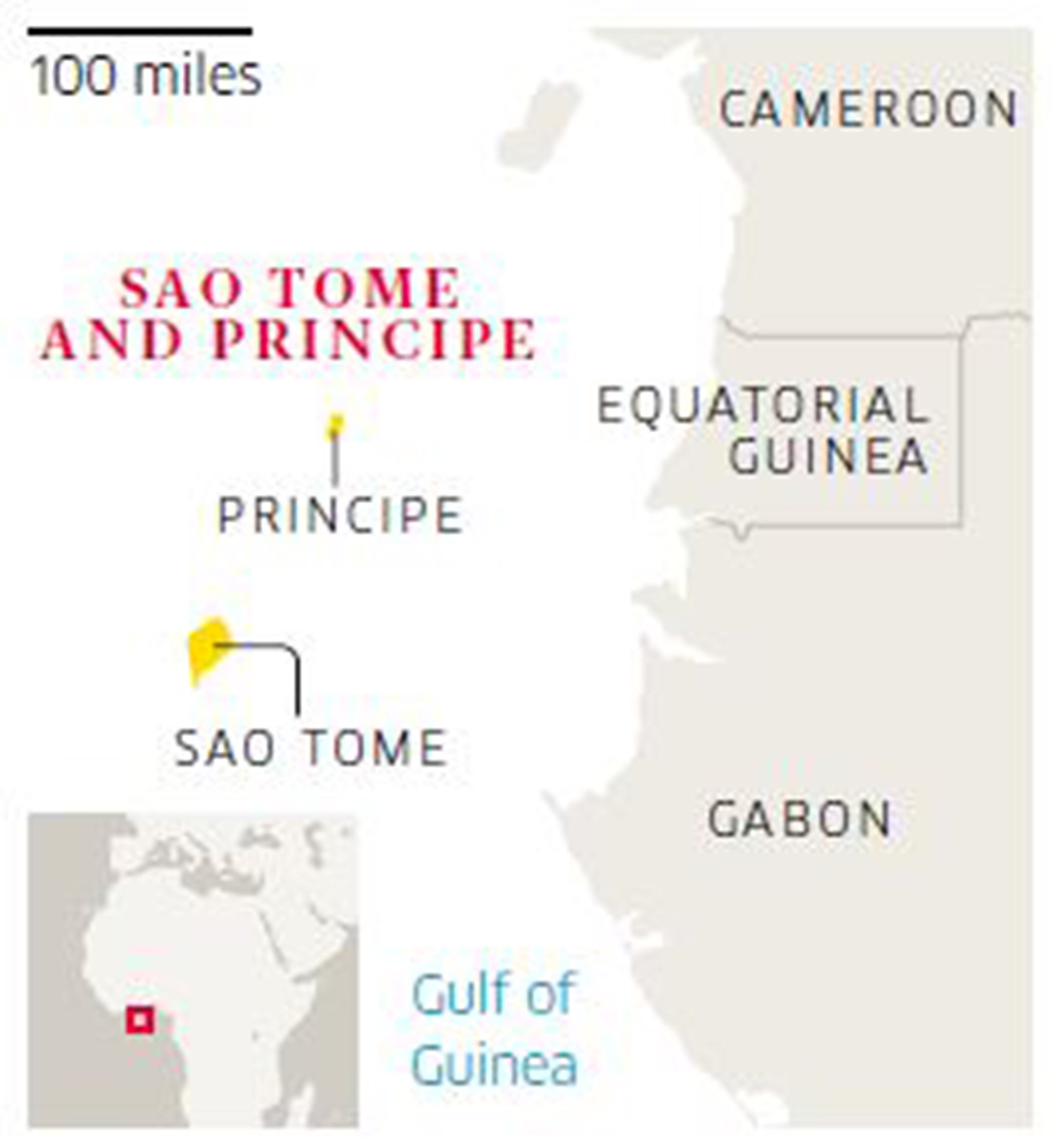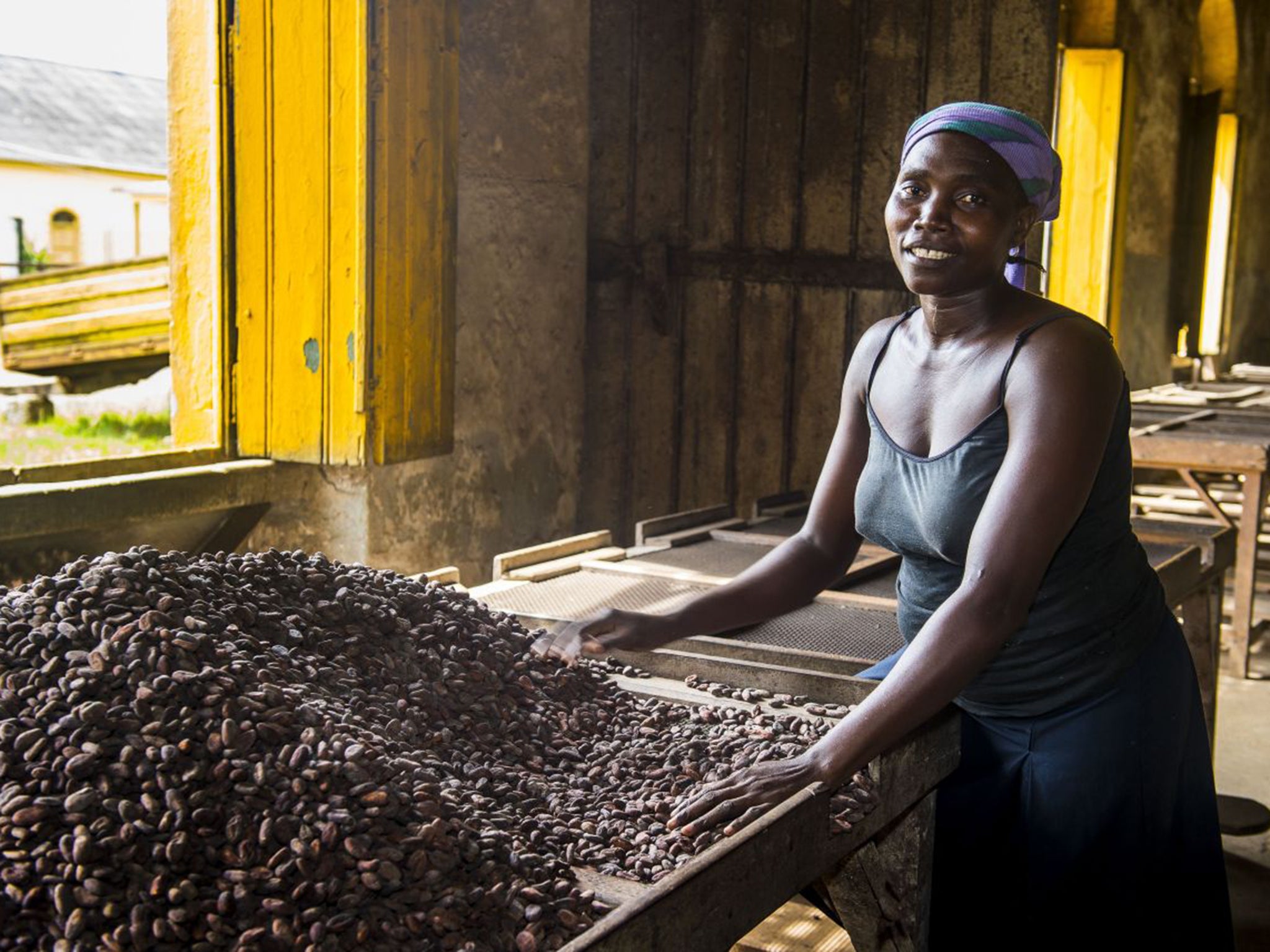São Tomé: How the tiny island plans to become the 'Dubai of Africa' after securing Chinese investment
The continent's second-smallest country seeks to expoloit its position off the coast of some of Africa's biggest economies

Your support helps us to tell the story
From reproductive rights to climate change to Big Tech, The Independent is on the ground when the story is developing. Whether it's investigating the financials of Elon Musk's pro-Trump PAC or producing our latest documentary, 'The A Word', which shines a light on the American women fighting for reproductive rights, we know how important it is to parse out the facts from the messaging.
At such a critical moment in US history, we need reporters on the ground. Your donation allows us to keep sending journalists to speak to both sides of the story.
The Independent is trusted by Americans across the entire political spectrum. And unlike many other quality news outlets, we choose not to lock Americans out of our reporting and analysis with paywalls. We believe quality journalism should be available to everyone, paid for by those who can afford it.
Your support makes all the difference.With a population similar to that of the Isle of Wight and an economy dominated by cocoa, the island nation of São Tomé and Príncipe fits more with the image of a beguiling tropical backwater than a cutting-edge services hub for some of the world’s fastest-expanding economies.
Until now, the sleepy West African archipelago has been best known for its role in proving Einstein’s theory of relativity – thanks to its location on the Equator during a solar eclipse – and a yet darker history as a key marshalling point for the transatlantic slave trade.

But Africa’s second-smallest country, situated on volcanic outcrops in the Gulf of Guinea, is making an audacious bid to become the “Dubai of Africa” by exploiting its position off the coast of some of the continent’s biggest economies – and potentially becoming the centre for a reawakening of diplomatic rivalry between China and Taiwan.
This week the São Tomé government launched itself on to the world market for thrusting island-based business enclaves with a two-day investment conference in London, during which it announced a deal to build a $800m (£518m) port in its naturally deep coastal waters with the help of a Chinese conglomerate.
Like Dubai, we want to be a platform, offering services to our neighbouring countries
The port, due to open in 2019, is designed to put São Tomé, a Portuguese colony until 1975, on the geopolitical map by turning it into a crucial trans-shipment point for large vessels carrying goods going to and from oil-rich but infrastructure-poor neighbours such as Nigeria and Angola. At present much of this work is carried out in the far-off Canary Islands.
Along with plans for a new airport to boost tourism to São Tomé’s unspoilt beaches and forests, the scheme is aimed at attracting high-end investors to set up a banking and services sector alongside an economy that is present reliant on the islands’ sought-after cocoa harvest to drive export revenues.
After a fractious start as an independent nation, São Tomé has become one of Africa’s more stable democracies and is placed 13th out of 54 African countries on a respected index of good governance.
In an interview with The Independent on Sunday, the Prime Minister, Patrice Trovoada, said the country had looked at models from Singapore to Switzerland but identified most with the Arabian Gulf’s most glittery emirate. “Like Dubai, we want to be a platform, offering services to our neighbouring countries,” he said. “We aspire to the Dubai model. And, of course, we are a parliamentary democracy.”
São Tomé will be just the most recent state to benefit from the vast influx of Chinese cash and manpower into Africa, with £78m promised from the Beijing-based company chosen to build the new port. But the tie-up threatens to put pressure on an entirely different geo-political hotspot in the shape of the historically strained relationship between China and Taiwan.
São Tomé is one of only 16 countries worldwide – and four in Africa – which give full diplomatic recognition to Taiwan, which China regards as a rogue province liable to forced recovery if necessary.
Taiwan earlier this year renewed a co-operation agreement under which it contributes £10m a year to the São Tomé government. Taipei is estimated to have provided some £155m in aid and investment since the island state gave it recognition in 1997.
The new initiative raises the risk that São Tomé will become the new frontline in a long-running diplomatic guerrilla war between China and Taiwan, which are nonetheless supposed to have been operating an unofficial truce in efforts to poach or isolate one another’s foreign supporters. An added complication is the dispute between China and a number of its neighbours, including Taiwan, over claims to territory in the South China Sea.
Mr Trovoada insisted that his country’s backing of Taiwan remained unaltered.

“What China is offering in a deal like this is loans, not donations. What we are looking at is a technically good Chinese company which has committed itself. It is a commercial arrangement, not a political one,” he said.
“When you look at our business plan, it is a good one and we could seek loans elsewhere if needed.”
If the resolutely upbeat prime minister is to be believed, São Tomé and its 160,000 Portuguese-speaking citizens are on the brink of a transformational change that will lift it out of impoverished isolation in the Gulf of Guinea to become a pivotal regional player.
Some on the islands may be forgiven for thinking they have heard similar promises before, after a joint venture with Nigeria to explore for oil failed to find any viable fields in its territorial waters.
But Mr Trovoada is at pains to point out that he is not following the hubristic path of some by lumbering taxpayers with expensive white elephants designed to attract investment that never comes.
“Promotion and good image is key for us,” Mr Trovoada said. “If you are small and far away you have to get something sexy for people to come to you.”
Join our commenting forum
Join thought-provoking conversations, follow other Independent readers and see their replies
Comments